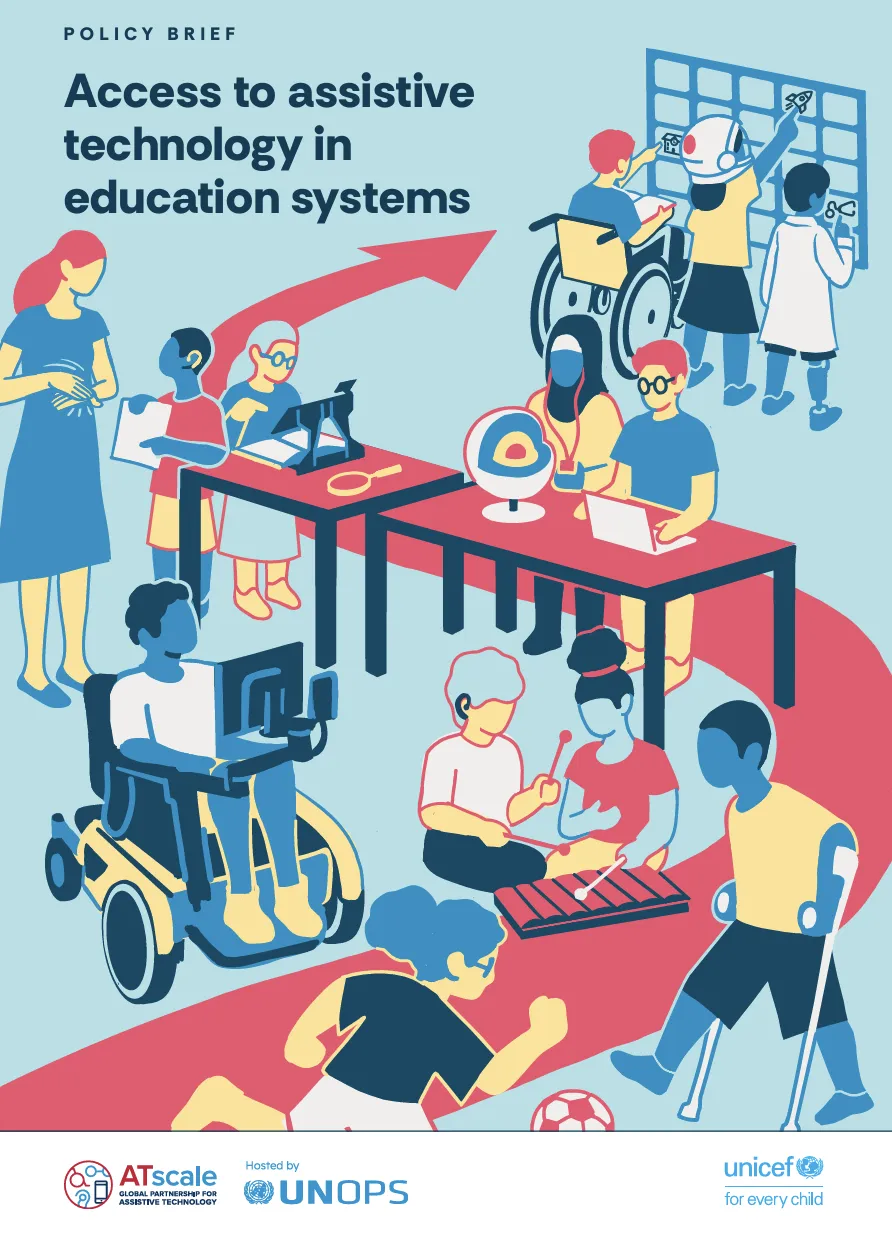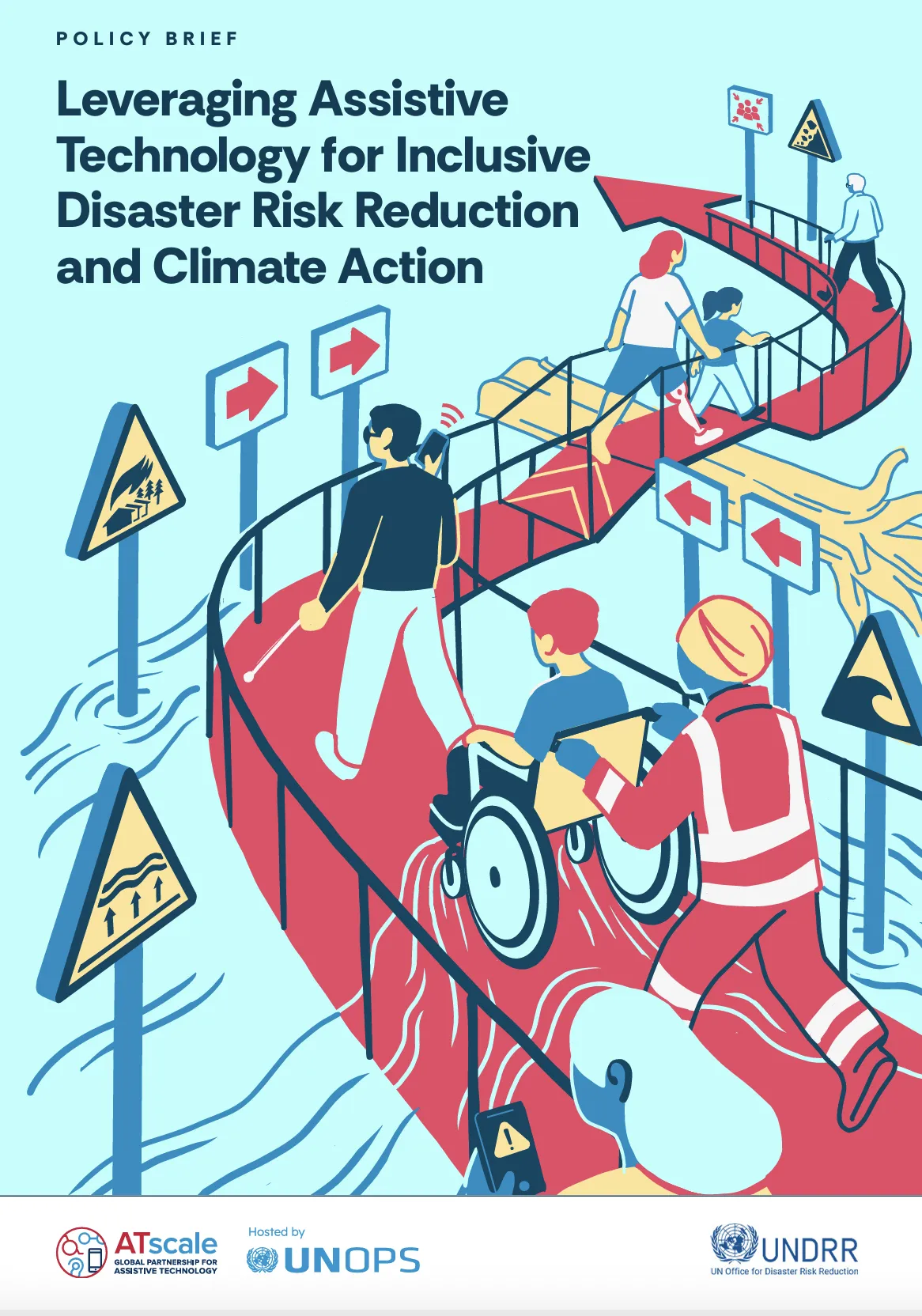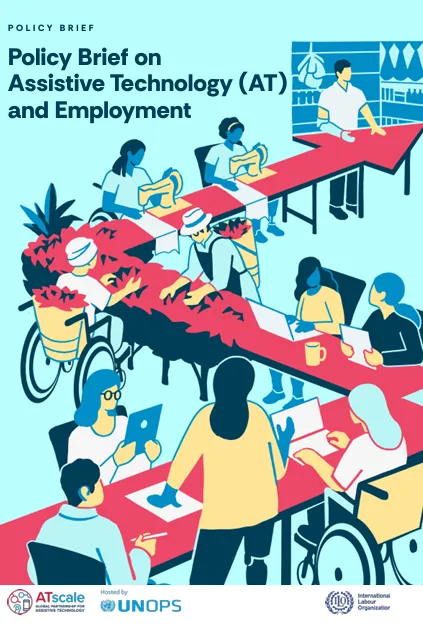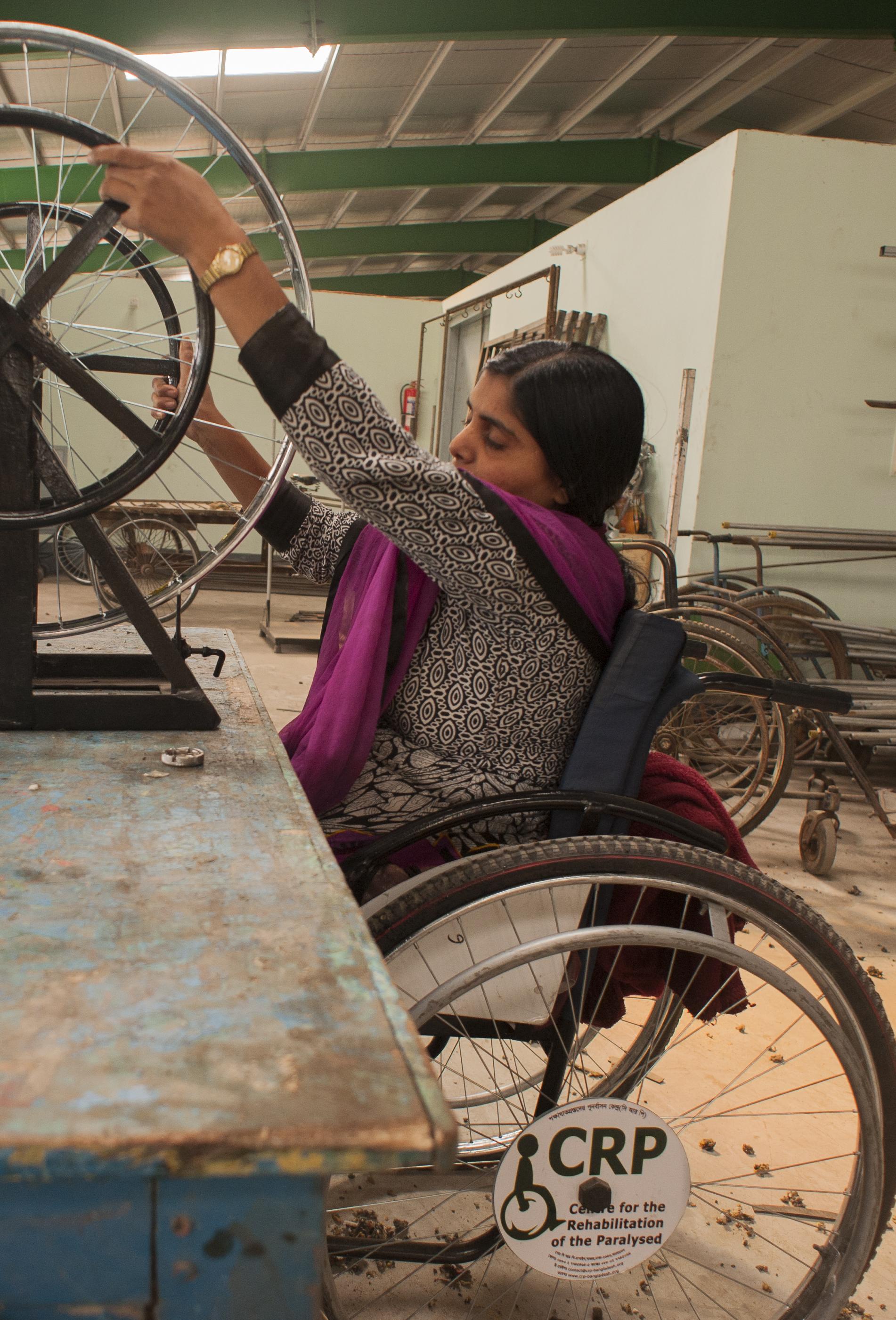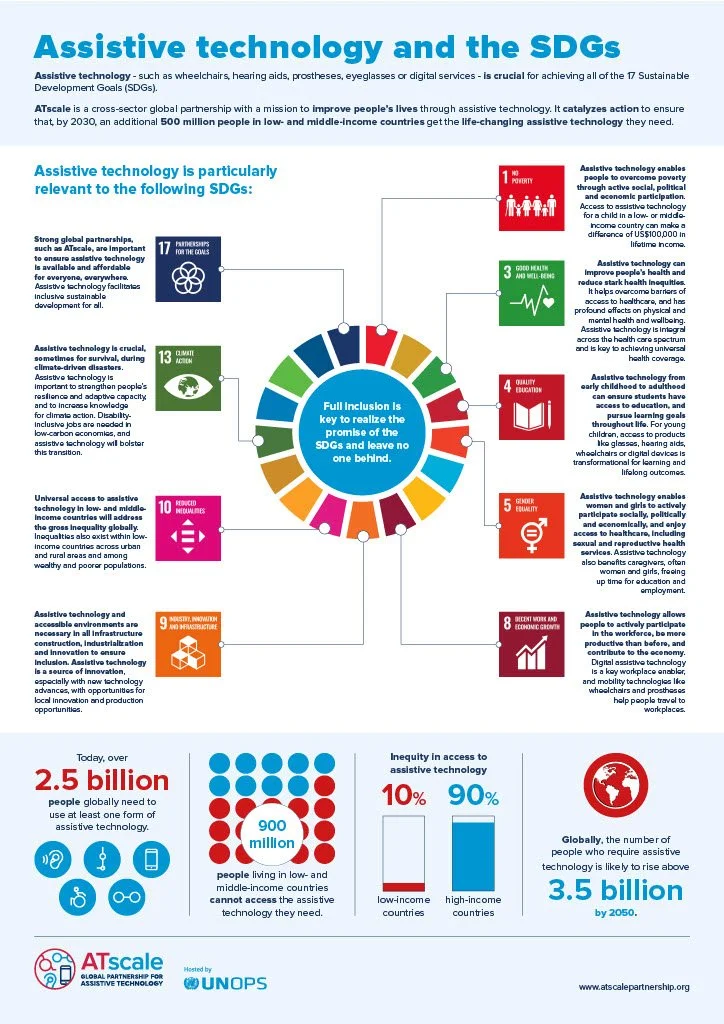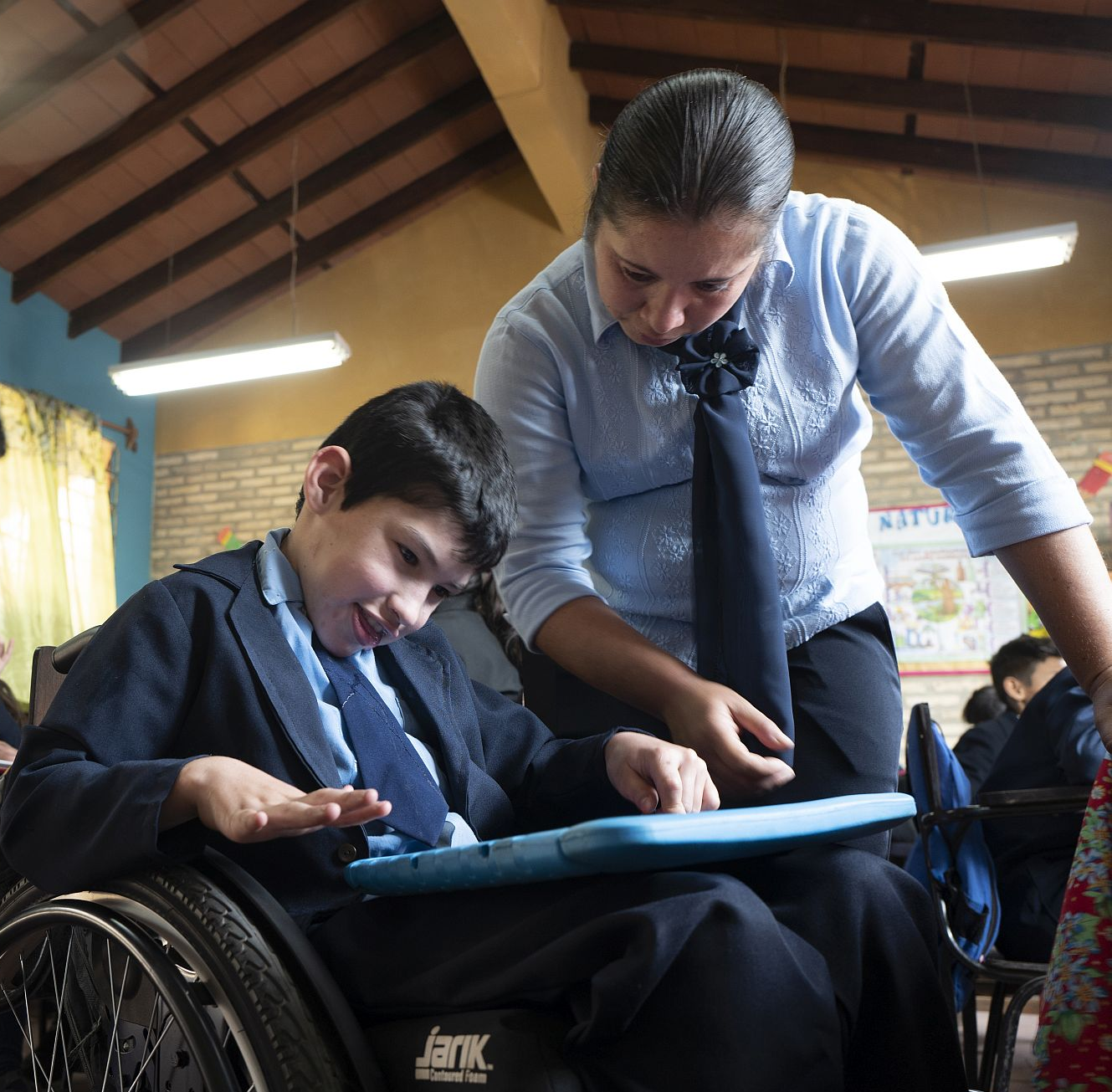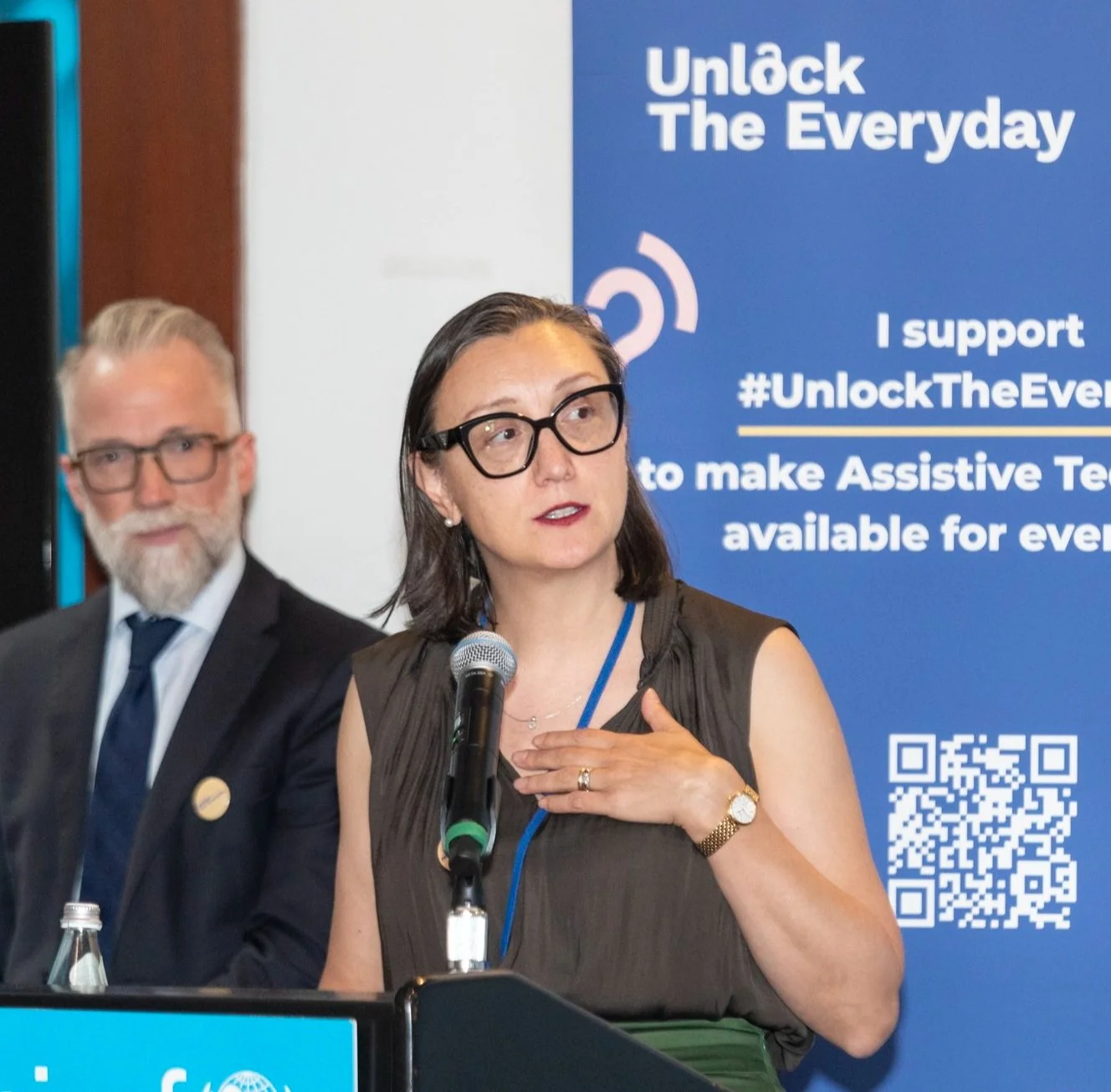
Cross-cutting themes
Together, let’s ensure access to assistive technology for all who need it.
©UNICEF
Access to assistive technology is essential across multiple sectors and is critical for advancing inclusion, equity and universality.
Assistive technology cuts across and is relevant to health, education, disability, healthy ageing, noncommunicable diseases, water and sanitation, employment, livelihoods, economic development, security, social protection, justice, environment and responses to humanitarian crises.
Leaving no one behind’ is impossible without universal access to assistive technology. And yet, assistive technology is a historically neglected and under-resourced area, suffering from massive inequities. People face access barriers related to their age, disability, gender, type of functional difficulty, living environment and socioeconomic status.
Our series of policy and thematic briefs make the case for integrating assistive technology into cross-sectoral strategies and operational plans at national level, as well as into funding priorities, global policies, and guidance.
Developed for donors, partners, policy makers, assistive technology experts, advocates and practitioners, the series is also relevant for anyone interested in inclusive development and progress towards the SDGs.
Explore the briefs below and download them in English, French or Spanish, as well as in accessible formats, to learn why assistive technology matters.
Policy briefs
Inclusion is key to realizing the Sustainable Development Goals (SDGs) and leaving no one behind. There will not be full inclusion while people are unable to access assistive technology. Assistive technology cuts across all 17 SDGs and is particularly relevant to some. Read more

